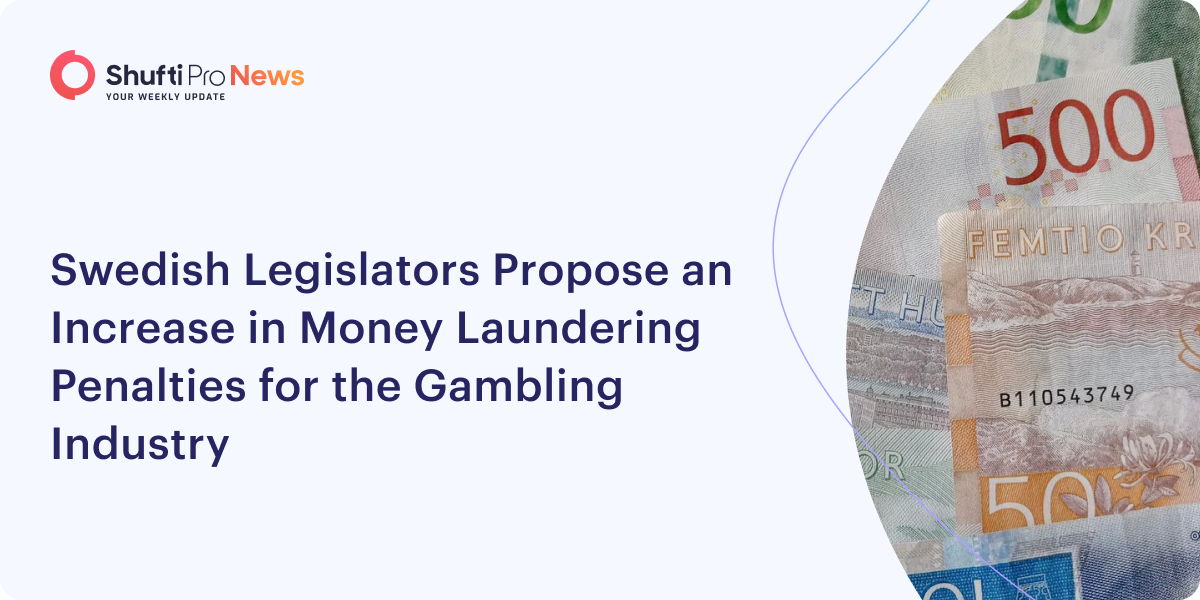Swedish Legislators Propose an Increase in Money Laundering Penalties for the Gambling Industry

Legislators in Sweden will consider increasing penalties for gambling operators who violate the nation’s anti-money laundering law.
Legislators in Sweden are considering a proposal to increase penalties for gaming operators who violate the country’s anti-money laundering law. Regarding the publication of a memorandum on June 19th, the proposal would increase the maximum penalty for violating the Gambling Act by the same amount.
There is currently a much lower maximum fine for money laundering violations under the Money Laundering Act than for gambling violations under the Gambling Act. As stated in the memorandum, this is “unsatisfactory” since crimes under the Money Laundering Act are often considered more severe than those committed under the Gambling Act. Gambling operators that violate the Swedish money laundering act will be penalised with a higher penalty fee.
Niklas Wykman, Minister of Financial Markets, stated, “An effective system for measures against money laundering is central to countering organised crime. The gaming market is a sector with a high risk of money laundering. The proposal provides better opportunities to combat criminal activity related to gambling.”
Furthermore, the memorandum contained proposals for introducing written requirements for telephone gambling sales. Therefore, customers could only legally participate in this type of gambling after accepting a set of terms in writing. Agreements not written by the requirement will be deemed null and void. Upon approval of the memorandum, the changes would become effective on April 01st, 2024.
Moreover, the Swedish regulator Spelinspektionen announced that from July 01st, it would impose a fee on owners of supplier licences. Spelinspektionen will charge a fixed fee to the organisation with a licence to provide gaming software to Swedish operators. Businesses must pay separate licensing fees for each licence unless the regulator exempts them.
As a result of “special events,” the regulator may charge a variable fee if the regulation fee does not cover the costs associated with supervision. The report released by Sweden’s Online Gaming Industry Association (BOS) found that 77% of the Swedish market for online gaming is regulated. This percentage was described as “critically low” in the report. Sweden has set a goal of 90% in channelisation – the number of licensed gaming products the country wishes to possess on the market.
Suggested Reads:
NIGERIAN-OWNED TECH FIRM, FLUTTERWAVE, CLOSES 45 BANK ACCOUNTS DUE TO MONEY LAUNDERING
AMLC DOWNGRADES TERROR FINANCING RISKS IN THE PHILIPPINES FROM HIGH TO MEDIUM-HIGH
REGULATORS IN HONG KONG URGE BANKS TO ACCEPT CRYPTOCURRENCIES

 Explore Now
Explore Now













